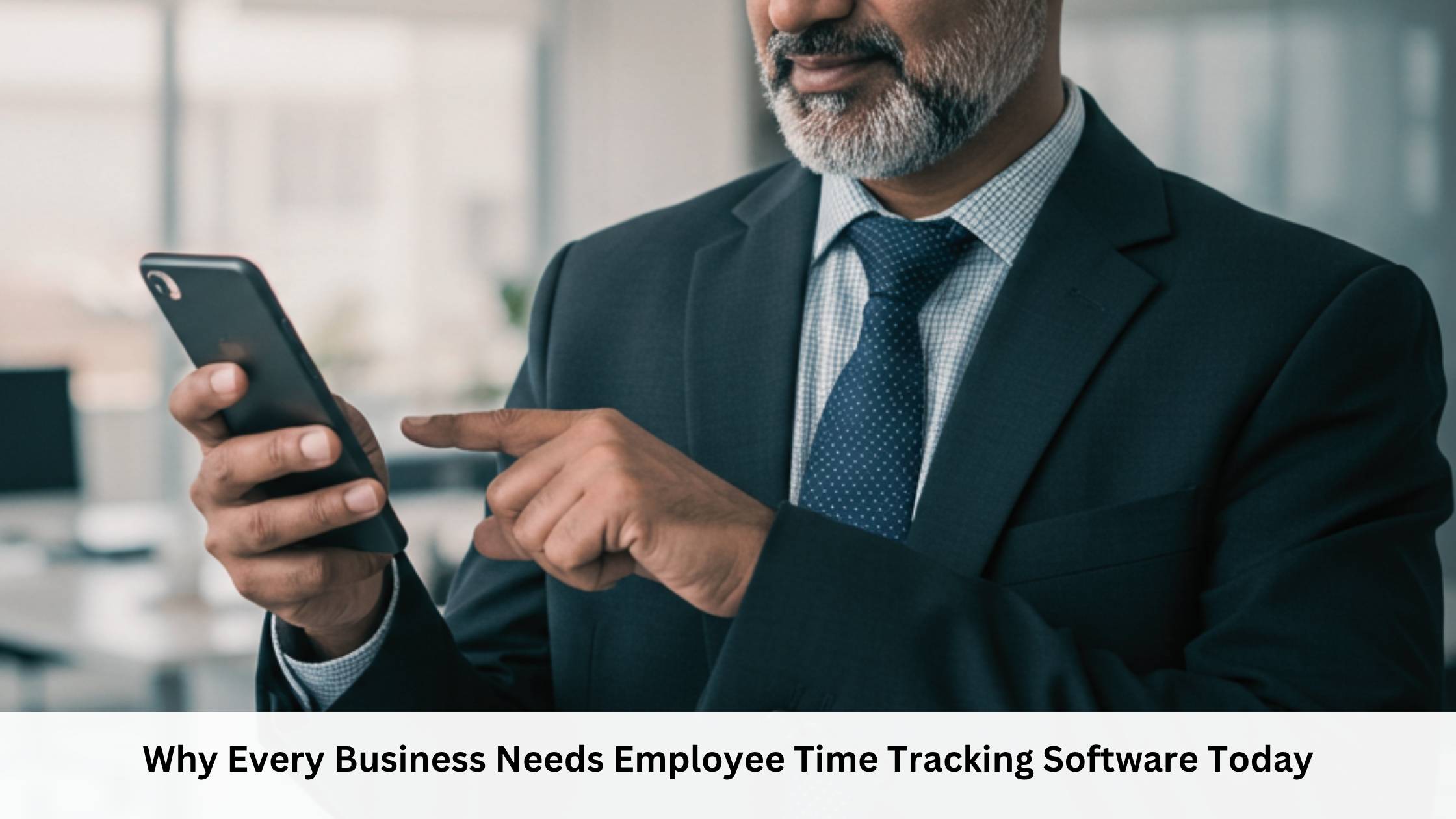In today’s fast-paced, hybrid work environment, maintaining visibility over employee performance, project timelines, and productivity metrics is more important than ever. Businesses—whether startups or large enterprises—are increasingly turning to employee time tracking software to monitor how time is spent, ensure accountability, and drive operational efficiency.
With the rise of remote work and growing compliance requirements, time tracking has evolved into a strategic tool rather than just a managerial tactic. This article explores the definition, key features, benefits, and best practices associated with time tracking software and its growing relevance in the modern workplace.

What Is Employee Time Tracking Software?
Employee time tracking software is a digital tool designed to monitor, record, and analyze how employees spend their working hours. This includes logging clock-ins and clock-outs, tracking time spent on specific tasks or applications, and generating reports that help employers manage teams more effectively.
Its role extends beyond timekeeping—it helps businesses boost productivity, comply with labor regulations, prevent insider threats, and manage projects with greater transparency.
Key Features of Time Tracking Software
Modern employee time tracking software comes equipped with a suite of powerful features that enable smarter business decisions:
1. Time Tracking & Activity Logging
Automatically logs start and end times, idle durations, and break times. This creates a transparent overview of daily workflows.
2. Activity History
Maintains detailed records of employee activity over time, which aids in performance reviews, dispute resolution, and internal audits.
3. Productivity Analysis
Offers dashboards and reports that visualize time spent on productive vs. unproductive tasks, helping managers fine-tune workflows.
4. Website and Application Monitoring
Tracks which websites and applications are used during work hours. This is especially useful for teams handling sensitive data, integrating with a data loss prevention service to flag unauthorized or risky platforms.
5. Integration with Project Management Tools
Easily connects with platforms like Asana, Trello, Slack, or Jira to keep task and time data synchronized for more cohesive project planning.
Top Benefits for Modern Workplaces
Boosted Productivity
With visibility into work patterns, businesses can identify bottlenecks, streamline operations, and encourage self-discipline among employees.
Improved Remote Work Management
Time tracking is essential for remote teams. Managers gain real-time insights into performance without micromanaging or invading privacy.
Reduced Operational Costs
By accurately logging time, businesses can minimize payroll discrepancies, prevent overbilling, and ensure fair compensation.
Enhanced Security and Risk Mitigation
When combined with a data loss prevention service, time tracking software helps monitor data access patterns, reducing the risk of internal breaches or unauthorized sharing.
Compliance and Ethical Use
With increasing scrutiny on digital surveillance, ethical and legal implementation of employee monitoring tools is crucial. Reputable time tracking software providers ensure compliance with labor laws, data protection regulations (like GDPR), and offer transparency to employees.
Features such as opt-in monitoring, anonymized data aggregation, and usage during work hours only help maintain a balance between security and privacy.
Time tracking also assists businesses during audits and supports legal documentation, especially in highly regulated sectors like finance, healthcare, and law.
Use Cases Across Industries
Remote Tech Teams
Use time tracking for agile sprints, code reviews, and billable project hours—optimizing team output and client reporting.
Creative Agencies
Track hours spent on graphic design, video editing, or content writing, allowing for accurate client invoicing and project scoping.
Customer Support Departments
Monitor time spent per customer query or ticket, improving resolution rates and service efficiency.
Healthcare and Legal Firms
Time tracking supports compliance documentation and integrates seamlessly with data loss prevention services to ensure confidentiality and security in handling sensitive data.
How to Choose the Right Employee Time Tracking Software
When selecting a time tracking solution, consider the following factors:
- Scalability: Can the software grow with your team and business needs?
- Integrations: Does it work with your existing tools (HR, CRM, project management)?
- User-Friendliness: Is the dashboard intuitive for both managers and employees?
- Customizability: Can it be tailored to your company’s work policies and privacy concerns?
- Support and Security: Ensure responsive customer support and features like data encryption and cloud backups.
Opting for a solution that aligns with your company’s culture and legal requirements is vital to long-term success.
Trends and the Future of Time Tracking
As the digital workplace continues to evolve, so does time tracking technology. Some key trends shaping the future include:
- AI-Powered Analytics: Offering predictive insights to improve productivity forecasts.
- Mobile and Cloud Solutions: Allowing for greater flexibility in hybrid and field-based teams.
- Integration with Wellness Platforms: Helping employees balance workloads and avoid burnout.
- Stronger Security Protocols: Merging with data loss prevention services to strengthen organizational cyber hygiene.
With automation and analytics playing a bigger role, time tracking is becoming a core element of strategic workforce planning.
Conclusion
In a world where time is money—and data is power—employee time tracking software has become indispensable. It empowers businesses to make informed decisions, optimize performance, and stay ahead of compliance demands without sacrificing employee trust or privacy.
From improving remote work efficiency to preventing costly security breaches through data loss prevention services, time tracking software is more than a management tool—it’s a business catalyst.
If your organization hasn’t embraced time tracking yet, now is the time to invest in a solution that aligns with your workflow, culture, and goals. The future of efficient work is being tracked—are you ready?






